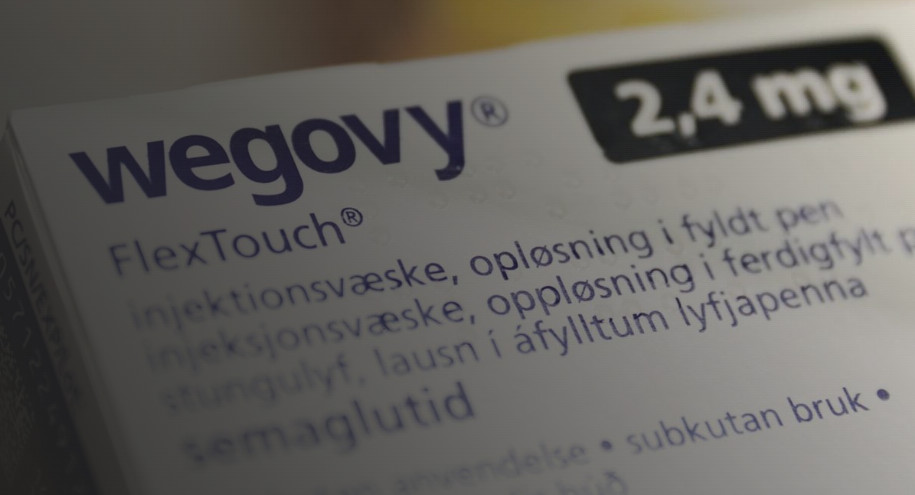
The Ozempic Craze and Its Complex Impact on Weight Loss Aspirations
In a world where many have longed for a “magic fix” for weight loss, the rise of semaglutide drugs like Ozempic has stirred mixed feelings among those who have struggled with their weight for years.
The Emotional Impact of Semaglutide Drugs 🌱
While research has delved into the potential mental health benefits of taking semaglutide drugs, there’s less discussion about the emotional impact on those who aren’t using these medications. Heather Young, who has battled weight issues her entire life, shared her experiences with CBS News. Her teenage years and early adulthood were a series of failed attempts with various diets and weight loss strategies, leaving her feeling defeated.
For Young and many like her, the desire for an effortless solution was always present. “All we ever wanted was a magic fix,” said the 37-year-old. “Instead, we were bombarded with diet culture, harmful pills, calorie counting, and fad diets.”

The Rise of Weight Loss Medications 📈
Medications like Ozempic, Wegovy, Mounjaro, and Zepbound have gained immense popularity for their rapid weight loss effects, helping both everyday people and celebrities shed pounds quickly. This surge in popularity brings about a complex mix of emotions.
“My initial feelings were definitely complex,” Young admitted. “On one hand, I want everyone to be their best selves—physically, mentally, and emotionally. If there is a medication that makes that more obtainable, I’m happy for them. But… I do think these drugs are being marketed as a magic fix, and it does trigger me.”
Ozempic and Mounjaro, originally intended for diabetes management, and Wegovy and Zepbound, approved for weight loss, are part of the GLP-1 drug class. These medications signal fullness to the brain and help regulate blood sugar levels.

Expert Opinions on GLP-1 Drugs 🔬
Dr. Rekha Kumar, an obesity specialist and chief medical officer at weight loss app Found, described these drugs as “a scientific breakthrough.” She highlighted their benefits beyond weight control, such as reducing cardiovascular risks and managing diabetes, which aligns with the fundamental goal of medicine: improving health, not just achieving a thinner body.
However, Dr. Kumar expressed concern about the growing buzz around these medications, particularly among those who don’t need them for medical reasons. “We’re seeing people want to get ahold of these medicines that don’t need them at all—people trying to fit into dresses and wanting to lose vanity weight,” she said. “And that’s not really what these were made for.”
The Broader Implications and Risks ⚠️
The popularity of GLP-1 drugs has spiked demand, leading to an increase in companies like Costco and Hims & Hers entering the market. Additionally, dangerous counterfeits have appeared on social media, posing significant health risks.
Heather Young is not alone in her conflicted feelings. Victoria Garrick Browne, a mental health advocate who has openly discussed her struggles with binge eating disorder, shared similar sentiments on her “Real Pod” podcast. “The Ozempic craze has been really hard for me because when I was younger, all I wanted was a magic pill that would make me lose 30 pounds,” she said. “I feel like I’m seeing it in celebrities and everyday life… This thing we all thought was impossible for weight loss is now a real thing.”
Long-Lasting Challenges with Body Image and Food Relationships 🧠
Alyssa Mairanz, a licensed mental health counselor and owner of Empower Your Mind Therapy, emphasized that issues with body image and food relationships can persist throughout life. “Sometimes you find a healthy relationship, and in your adulthood, you can be re-triggered by so many factors,” Mairanz explained. “Many people find themselves re-triggered at different phases in adulthood.”
Young noted that seeing ads promoting drugs that “suppress your appetite” and “reduce cravings” has been particularly challenging. “It really brought stuff up for me that completely contradicted my values around food these days,” she said.
Mairanz added that such messaging contributes to a culture focused on weight loss and body image rather than overall health. She urged those struggling with similar issues not to “connect your self-worth to what your body looks like.” This can lead to frustration and potentially harmful weight loss methods. Seeking professional help is essential for those needing support.
Conclusion 🌟
The rise of semaglutide drugs like Ozempic presents a mixed bag of emotions and implications. While these medications offer a promising solution for weight loss and overall health improvement, they also trigger complex feelings among those who have long sought an effortless fix.
As these drugs gain popularity, it’s crucial to approach them with caution and consider the broader impact on mental health and body image. Consulting healthcare providers and maintaining a balanced perspective on weight loss and health is essential for anyone considering these medications.



















